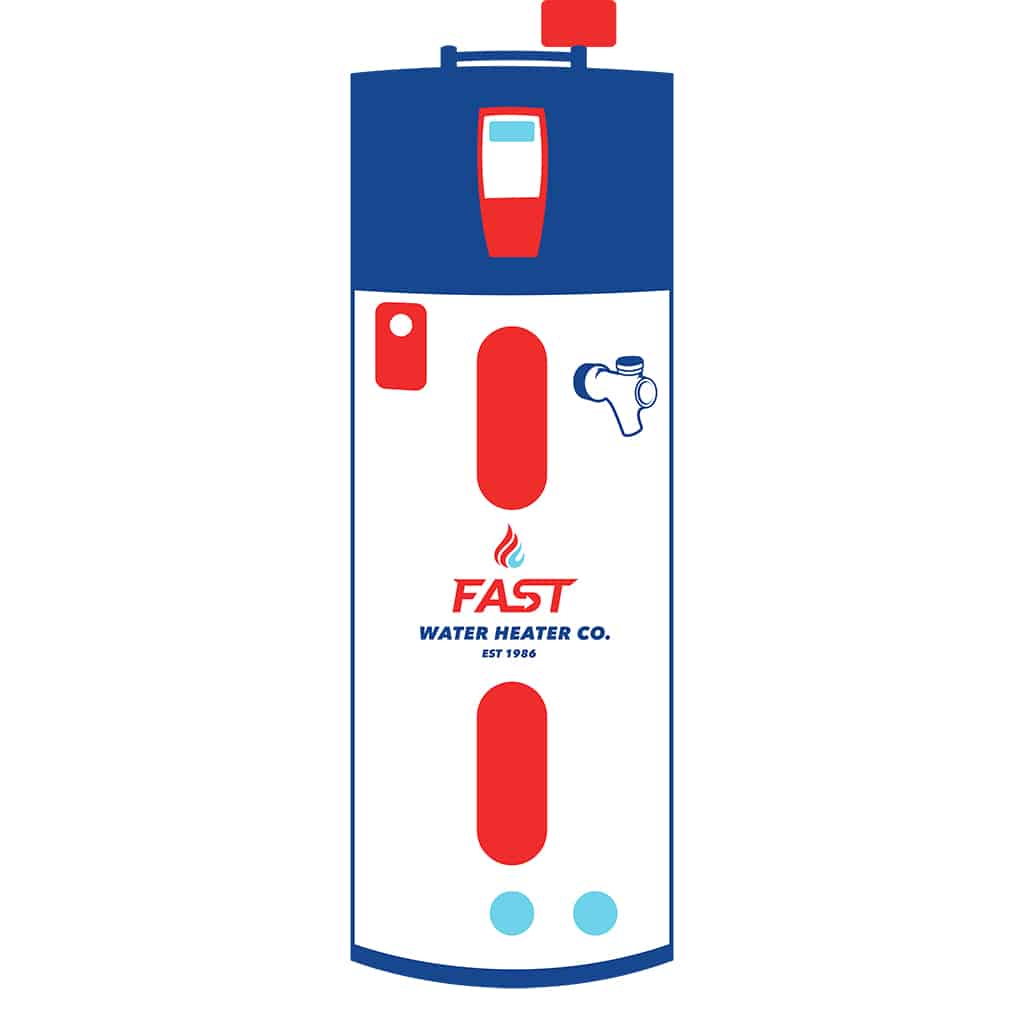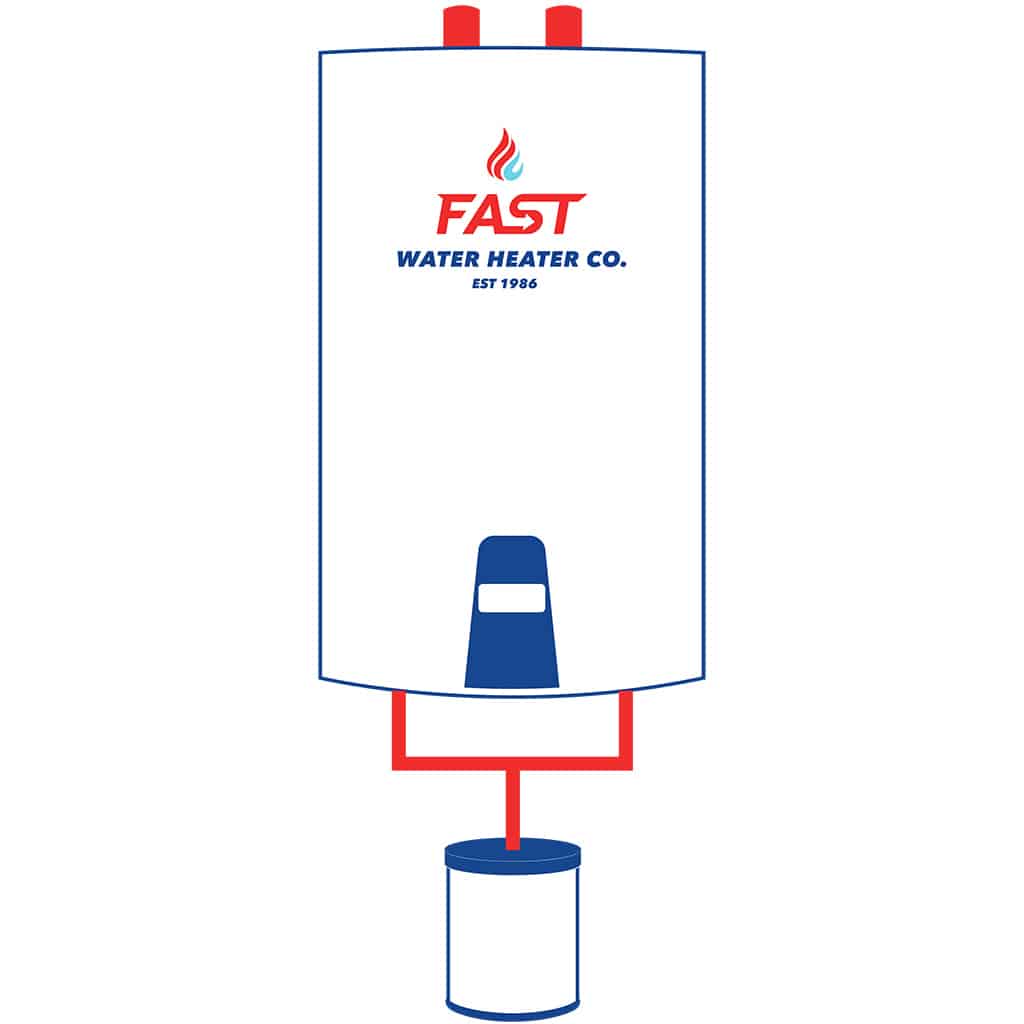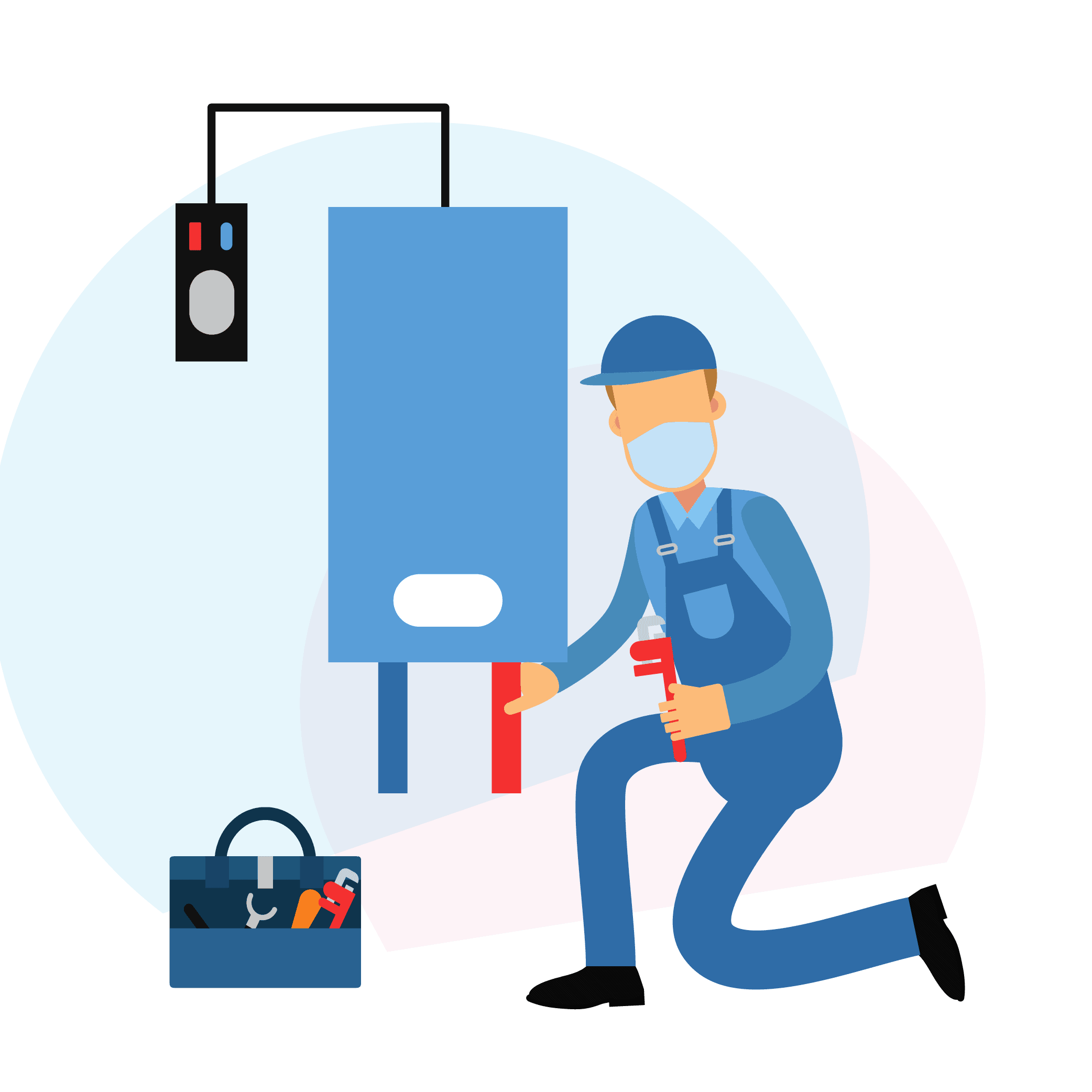TYPES OF WATER HEATERS
- Standard Tank Water Heaters
- Tankless Water Heaters
- Hybrid Heat Pump Water Heaters
Water heaters are one of the most under-appreciated appliances in our homes. When your water heater isn’t working, you know it right away.
The good news is, Fast Water Heater has you covered. We’re the water heater experts and are here to answer all your questions and get you all the information you need to repair, replace or install your water heater.
First things first, there are three major types of units: standard-tank water heaters, hybrid heat-pump water heaters, and tankless water heaters.
give us a call to talk water heaters!
(425) 636-7038

Standard Water Heaters

Hybrid Heat Pump Water Heaters

Tankless Water Heaters
STANDARD TANK WATER HEATERS
Although numbers differ by region, by and large, most homes use a standard tank water heater. These employ a gas burner, or electric element to heat a large-capacity reservoir of water. It’s constantly running so when you turn on a faucet for hot water, it shoots that heated water and starts heating more. However, because there is a gallon capacity on the size of your water heater, you may run out of hot water if you run it for too long.
Typically, most homes have 40- or 50-gallon water heaters. Large homes, or ones that have a hot tub, might require a bigger unit, though. Overall, the cost of the unit and installation of a standard water heater is cheaper than a tankless unit, but their life-span isn’t as long. So if you intend to stay in your home for a long time, or you may be moving soon, this is something to consider.
Tankless Water Heaters
Tankless water heaters are a newer technology, but are catching on because they take up less space than a standard water heater, and they can provide endless hot water. Instead of holding a large reservoir of water, the unit heats water “on-demand,” or as you need it. This means it might take longer to get warm water to your faucet, but once it’s hot, it will stay that way.
Tankless water heaters are also more efficient than standard units. Sometimes the access to unlimited hot water means folks use more, eliminating potential energy savings. The main drawback of tankless water heaters is the installation cost, which usually requires running a dedicated fuel line to the heater, can be more than double the price of a standard unit.
Hybrid Heat Pump Water Heater
Heat pump water heaters are the newest technology in water heater innovation and offer the most energy-efficient models on the market. By utilizing the ambient temperature of the air around it, water is pre-heated so the unit uses less energy. Heat pump water heaters are so efficient, they can cut your water heating bills in half. However, a heat pump water heater needs to be installed in an unconditioned space, such as a garage or attic. Also, they make about as much noise as a dishwasher when in use, so you might not want to install one next to a bedroom. In some areas, utility companies offer significant rebates on the conversion to heat pump water heaters, off-setting any additional costs.
What is the Average Life of a Water Tank?
The average lifespan of most tank water heaters ranges from 10 to 20 years, with many homeowners replacing their units at around 13 years. A tankless water heater can last for 20 years, or even longer since there are fewer parts that “hold” water and can suffer from corrosion.
There are several variables that can impact that lifespan of your water heater:
- Quality of Unit – Understandably, certain water heater models are going to last longer than others. According to a Consumer Reports study, models thicker insulation and higher-wattage heating elements were of superior quality. Some models have better anodes to fight corrosion and even self-cleaning features to flush mineral deposits from pipes.
- Rate of Usage – A 50-gallon tank water heater that serves a family of six won’t last as long as one that serves just one or two people.
Installation – Water heaters must be installed correctly to work properly. For example, a poorly-ventilated unit will have a shorter lifespan as well as create a safety hazard. Water heaters should also be placed in areas that aren’t susceptible to flooding and that are easily accessible for maintenance. - Regular Maintenance – One of the simplest ways to increase the useful life of your water heater is to perform regular maintenance on the unit. This can help you identify issues and prevent other costly ones.
How Old is Your Current Water Heater?
Even if you can’t find the paperwork for your existing water heater, you can probably determine its age by the serial number. Most water heaters have a serial number that consists of a letter followed by a series of numbers.
The first letter corresponds to the month the unit was manufactured. For example, “A” is for January, “C” is March, all the way through “L” to December. The second two figures represent the year. So, “A11” would mean the unit was manufactured in January 2011. You can also confirm this on the manufacturer’s website.
Repair vs. Replacement When Things Go Wrong
If you’re having trouble with your water heater, it may or may not be time to replace the unit. For example, there might simply be an issue with your thermostat, the pressure relief valve, or your water supply pipes. These are potential fixes without replacing your unit.
But, when your water heater needs replacement, you can choose the same type of unit or consider some upgrade possibilities. Perhaps changing needs will prompt you to go with a larger or smaller tank or you may opt to go tankless.
Fast Water Heater Company serves customers throughout the West Coast. Contact us today to learn more about your options or to schedule an appointment to diagnose your issue – fast.

